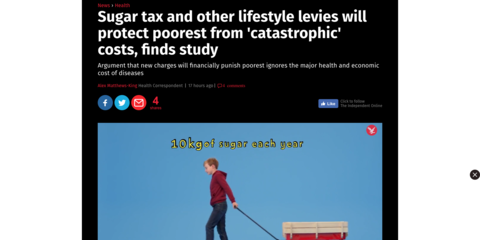
Addressing the economic burden of non-communicable diseases
The George Institute has taken part in The Lancet Taskforce on non-communicable diseases (NCDs) which examines the costs and economic interventions that could help reduce the burden of NCDs worldwide.
Professor Stephen Jan is the lead author of the paper three in the series: Action to address the household economic burden of non-communicable diseases. It found that more than 60 per cent of some patient populations suffer catastrophic health expenditure and sets out ways to increase universal health coverage worldwide.
Professor Jan, and a team of researchers worldwide, examined evidence from 66 international studies on 13 chronic diseases and conclude that NCDs place a substantially higher economic burden on low income households compared to higher income households, especially in the absence of health insurance. Uninsured patients experienced a 2-7 fold increase in the odds of catastrophic health spending compared with insured patients.
Even with protective health insurance, high levels of co-pays or a lack of coverage for specific treatments mean households can often experience catastrophic expenditure. In China, for example, one in three patients (37%) with stroke are impoverished from paying for medical treatment and even among people with health insurance, over half (53%) experienced financial catastrophe.
“Poverty and economic hardship have many causes, but this major body of evidence highlights the ruinous and long-term economic burdens of non-communicable diseases on households. An important policy response is to provide financial protection through tax-financed health care and social health insurance programmes, and within these programmes, provide for the subsidisation of interventions that are cost-effective,” said Professor Jan, Head of Health Economics at The George Institute.
The George Institute’s Jan Muhunthan, who also contributed to the paper, said the issue of UHC was also relevant in Australia. “Our universal health coverage system is providing high quality cover for many, but it is a myth that out of pocket costs and expenses aren’t an issue in Australia. Rural communities and many Aboriginal and Torres Strait Islander peoples do not have the same level of access to healthcare as people living in the major cities and this is something we need to address.”
In a linked Comment, Dr Tedros Adhanom Ghebreyesus, Director General of the WHO, said: “Every year, almost 100 million people are pushed into extreme poverty because of out-of-pocket health spending, and the costs of treating NCDs are a major contributor to this global scandal. Nobody should lack access to health services because they cannot afford to pay. Failing to provide adequate coverage for NCDs can widen inequities not only in health, but in all other social and economic domains.”
Key messages
- Catastrophic health expenditure has been found to occur in more than 60% of some patient populations with non-communicable diseases (NCDs; cancer, cardiovascular disease, and stroke); large variations in such outcomes occur by disease and context
- Being uninsured increases the risk of catastrophic health expenditure in patients with non-communicable diseases
- Programmes to achieve universal health coverage need to adopt compulsory pre-payment via taxes or national insurance contributions
- Cost-effectiveness and the targeting of the poorest groups need to be primary considerations in prioritising services that are included in insurance programmes to achieve universal health coverage
- Addressing the household economic burden of NCDs is an important step in efforts to alleviate global poverty and achieve the UN’s Sustainable Development Goal
The Lancet Taskforce on NCDs and economics is a partner of the WHO’s Independent High-Level Commission on NCDs, and will be launched at the WHO NCD Financing meeting in Copenhagen (9-11 April).
The Taskforce also explores how taxes on soft drinks, alcohol and tobacco will be a powerful response to rising rates of NCDs worldwide. By analysing consumption patterns, expenditure and responsiveness to price changes across different income groups, the Taskforce provides a comprehensive analysis of existing data to help governments understand the potential impact of taxes, and inform whether their use is justified.
Read the full series of papers at thelancet.com/series/Taskforce-NCDs-and-economics






